Student Blog
Life Hacks
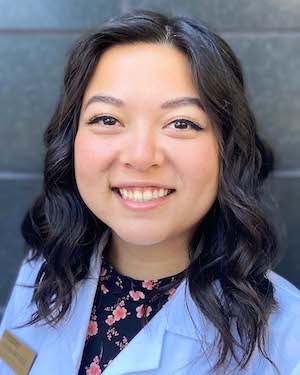
Ranking 4 Tools I’ve Tried to Organize My Life ⟩
December 28, 2021, by Alyssa
Life Hacks
I love to organize. I find it so interesting to see how other people organize their daily schedules and to-do lists, so I’ve decided to share my planner tool journey with all of you in two parts. Part 1 (this blog) is ranking my experience with every tool I’ve tried to use in the past few years. Part 2 (coming soon in 2022) will break down my current planner system.
Note: As with any occupation, the method for organizing and planning has to fit the person. This is my personal ranking, no hate to anyone who uses these.
#4 Paper Planners
Coming in absolute last for me is using a paper planner. I really wanted to like using one — I love the ✨ aesthetic ✨ of a nice paper planner. I tried hard to make it work and spent . . . too many dollars in the process. Sometimes buying an organizational tool feels like you’re getting organized, even if you don’t actually use it*. I was convinced I just hadn’t found the right planner set up, so I’d buy another one. This was an expensive self-misunderstanding.
My main qualm with paper planners is the commitment to keeping it with you. Unless I need to bring my laptop somewhere, I never carry anything except my phone. I ended up writing down random notes in my phone to then add to the planner, which was too many steps. In the same vein, I couldn’t check my to-do lists/calendar if I was on the go.
I wanted to color code it and make it pleasing to look at. The thing that got in the way of this was . . . me — (1) I didn’t dedicate any time to it, (2) My handwriting is not neat enough for that, and (3) I’m lucky if I have two pens on me at any time. Forget about carrying multiple colors.
Alas, my dreams of having a #bulletjournal instagram account were for naught. I moved into the acceptance phase of grief and transitioned to trying out digital systems for getting my life together.
#3 Computer Stickies
For two years in undergrad, I kept all of my to-do lists in the Mac built-in stickies program. I set up my stickies with due date lists for each class for the whole semester. I then had one master schedule that I would type out and copy/paste tasks from the other sticky notes. I realized I liked my schedule in list format, and I wasn’t as interested in the visual blocks of time on a calendar.
This solved my issues with my often illegible handwriting, and I figured I needed to be on my computer for most of my tasks. But of course, I couldn’t access my lists without my computer so I was back to making random phone notes when I was on-the-go. I phased this program out when I discovered my current system.
#2 Google Calendar
I keep a Google calendar for a visual of my class schedule, but it never made sense to me for managing tasks. I like to schedule things even if they only take 5-10 minutes, and I couldn’t see the details of those “events” on the calendar without clicking on them.
Nonetheless, I’ve included it on this list out of respect for its interface. Lots of color options, repeating events, cross-device syncing — all beautiful features.
#1 Trello
I live laugh love ride and die by my Trello boards. I was introduced to Trello in a coding class in undergrad for the classic use of “to do” “doing” and “done” lists. As someone whose work style leans toward start-to-finish in one sitting, this workflow doesn’t really work for me. BUT I realized Trello had a lot to offer. I’ll get into it more in my next blog, but in summary, it combines everything I liked about Google calendar and my stickies system. ✨ Stay tuned! ✨
* Since Trello has been by my side for the last 3 years, I sometimes miss the thrill of setting up a new personal organization system. If this resonates with you, I highly recommend playing organizing video games (e.g. Unpacking, Wilmot’s Warehouse) to fill that void 🎮
⋯
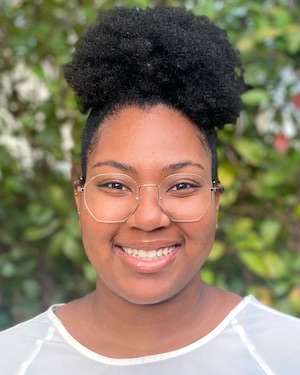
6 Lessons from My First Semester as an OTD Resident ⟩
December 23, 2021, by Kayla
Beginnings and Endings Life Hacks What are OS/OT?
The first semester of my OTD year has come to an end, here are some lessons that it taught me. Let’s get right into it!
1. This is Not The Master’s Program Anymore
As a student in the MA-II program, I became so accustomed to (and honestly, reliant on) the structure; class four days a week and one day for fieldwork. It was so consistent that when I began the OTD and my schedule became so much more flexible it was a bit of a shock. In the OTD program, you have class 1 day a week and all other time is spent engaged at your residency site. Because I spent the majority of my time providing direct patient care, I found myself having to switch my brain from “clinical to classroom” in order to be in the right headspace for group discussions and class participation. I really had to adjust to the new flow of things . . . adapt to my new roles and routines, if you will.
2. You Won’t Feel Overwhelmed Forever
Beginning a new program, moving halfway across the country, figuring out my role as the first resident at my site, studying for boards, and tending to my mental and physical health . . . it was a lot. I remember attending a residency seminar entitled, “What Have I Gotten Myself Into”, where residents currently in their final semester of the program reflected on their first semester and assured us that even though it was going to get hectic, that we would make it through. On the other side of my first semester, about three things I am absolutely sure. First, I was 100% overwhelmed during the first few months of the semester. Second, I was not alone in feeling this way. Third, that feeling does not last forever.
For me, what helped get through the days where it felt like I had too much on my plate was to remember my why. Thinking about why I began on this journey in the first place, understanding how my current responsibilities fit into the bigger picture, and most importantly, taking a deep breath and giving my best effort.
3. Mistakes Are Going to Happen
I am no stranger to making mistakes, but over the course of this semester as I was beginning to come into my role as a new professional I, expectedly, made more than I was used to. I had to learn how to reframe my mistakes in a way that allows for growth rather than feelings of guilt and how to turn thoughts of “Why did I do that?” into, “How can I do better?” Mistakes are a part of the process of learning and I had to learn to be thankful for the new perspective I gained along the way, after all . . . perspective is everything!
4. How To Navigate The “In Between”
As an OTD resident although you are a registered and licensed therapist, you still occupy the role of a student and mentee. This semester taught me how to embrace the duality of the unique position that we as residents are in. I was faced with having to define my role as an OTD resident, especially because my site has never had one before, and learn to be confident and accepting of changes as I encountered them. Biggest takeaway: be confident in the path you’re walking and don’t be afraid to ask for help when you’re unsure of your next step!
5. No Two Residencies Are The Same
This lesson is rather short, sweet, and to the point. Even if you share the same area of practice with another resident, no two placements are alike. Things between residencies may be different, but yours is specific to you and your interests and THAT is what matters. Remember: comparison is the thief of joy.
6. The OTD Really is What You Make It
If you have ever met with me either via office hours or one-on-one, I always harp on this sentiment. This program is what you make it, it is YOUR experience, YOUR vision, and YOUR year. For many of us, there will never be another time in our professional career when our only goal is to observe and to learn as much as we can. It is so easy to get caught up in all of the stress and responsibility (I am by no means exempt from this), that we forget to seek out and enjoy the experiences that come along with this program. This semester challenged me to not only be more mindful and present but to truly stick to the goals I set for myself to make sure that I am taking full advantage of the opportunity in front of me.
As this semester, and year, come to an end I can’t help but look forward to all of the experiences and new knowledge that 2022 holds. More importantly, I can’t wait to share them all with you. Happy Holidays!
⋯
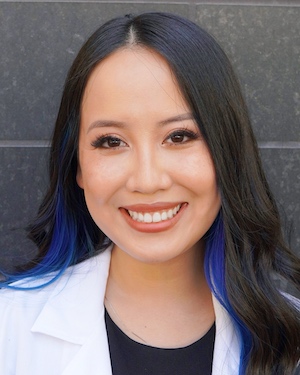
8 things I 8 this year that I used to love, but now h8 ⟩
December 22, 2021, by Teresa
Life Hacks What are OS/OT?
As we heard more and more about a novel “coronavirus” with each day, I was working full-time as a rehab aide at a nursing home — which at the time, were severely ill-equipped to handle a pandemic with respect to manpower and physical resources. One morning in April 2020, I woke up for another day of work when I realized that overnight, I had been robbed of 2 out of the 5 primary ways I interact with this world.
The anosmia (loss of smell) and ageusia (loss of taste) lasted about 3-4 weeks, but fast forward to 20 months later, nearly TWO YEARS, and I still experience parosmia and dysgeusia, which means those 2 senses returned but that my perception of how things taste and smell is incorrect compared to my memory of them. So without further ado, here are 8 things I have consumed during this pandemic that I used to love, as well as some tips and tricks I’ve picked up along the way so I can continue to enjoy them as I adapt to this new and strange sensory experience.
- I’ll start off with the one that makes me saddest — potatoes 🥔. Yup, that wonderful versatile vegetable. Like a diamond, she thrives under pressure — she can be mashed, she can be fried, she can be baked and loaded. We all know and love her! My comfort food was always french fries, so you can imagine my disappointment when my teeth first pierced through that crispy exterior and I immediately wanted to spit it back out. Where I used to taste salty, crunchy goodness, I now perceive an enhanced chemical flavor of starch. My workaround? Sweet potato fries! My perception of sweet foods didn’t change much, so sweet potatoes still taste the same and even though it’s not exactly the same, I still get the oral gratification from the textures.
- Speaking of enhanced chemical flavor, you know that very distinct artificial banana flavor they put in candy, like with banana-flavored Laffy Taffy? Well, all bananas 🍌 taste like that to me now. While it’s not the same, I am reminded of what a banana used to taste like when it’s mixed among other fruits, like in a smoothie or açaí bowl! The banana flavor is still most prominent in those mixtures, but the “artificial” flavor is dampened some by other fruits, yogurts, and juices.
- If I could only have one food for the rest of my life, it would be either phở or tacos but an essential garnish to both is onion. However, I can tell the distortion of onion is resolving with time because at first, the smell of it was unbearable and truly smelled like the secretion from axillary nodes (aka B.O. 😅) but now, if I cook the onion slices before adding it to my bowl of phở or ask the taquero for grilled onions instead, I’m still able to enjoy my favorite foods.
- Along with #3, garlic is a staple in Asian cuisine. Growing up, I knew I needed to finish up my homework soon the moment the delicious smell of garlic filled the house because it meant my mom was about to complete the last step of dinner: sautéing vegetables. I remember the stunned look on my mom’s face as I regained my senses when I entered her kitchen and went, “What’s that awful smell?!” to which she responded, “. . . I was making your favorite, garlic green beans.” But luckily, as with onion, this is something that seems to be resolving with time as well.
- I touched on this a bit earlier, but fried foods . . . and that includes chips. This has been a tough one because I love the feeling of a good *crunch*. My workaround? SAUCES! Using my favorite sauces, while discovering new ones in the process, has been such a blessing and helps mask the distorted tastes.
- You may have heard of this one: meats. What you might not know is that the distortion can happen on a spectrum. For me, chicken 🍗 tastes the most similar to before and is the least pungent. Then comes beef, which I can’t stand to eat on its own, like as a steak 🥩, but still tastes gr8 within a mixture of other flavors, like in a burger! The most pungent taste is pork 🥓, which has been a difficult workaround because so many recipes in my culture call for a pork-based broth.
- Not that I (will admit I) eat this, but an honorable mention is toothpaste, since it was my first indicator which alerted me to immediately self-isolate and prevented me from spreading it to my loved ones. Shout out to toothpaste, making your BADLs and COVID prevention possible since 1824! Toothpaste companies–feel free to recruit me for your next marketing campaign. Move aside, “recommended by 9 out of 10 dentists,” “potential early coronavirus detection tool” coming through! In all seriousness, all toothpaste tastes like what onion used to taste like, while mint and mint-flavors still taste the same. This COVID symptom is most mysterious, indeed.
- And last but definitely not least, coffee ☕. Every cup of coffee I’ve had in the last 20 months tastes burnt but I’ve found that using a dairy alternative really helps. My favorite has been oat milk, because its strong flavor overpowers and masks the burnt taste really well. However, I’ll let you in on the true caffeinated nectar of life which has sustained this tired graduate student so far–Guayaki’s organic yerba mate, but ONLY the flavor Enlighten Mint and ONLY in the can, NOT the bottle. Thank me later.
This experience, while something I would never wish upon anyone, deepened my appreciation for occupational therapy. The child labeled as a picky eater, the adult whose high perceived pain has them labeled as a malingerer, the older adult who resists polypharmacy . . . We are unable to fully understand other people’s very subjective experiences, so we cannot say with absolute certainty that there is one right way to experience this world. As OTs, we approach this subjectivity by making our care occupation-based. We make it client-centered, in order to figure out how to best meet unique needs and experiences.
The way we taste and smell is so closely tied to how we engage in our occupations and in life, in regards to nutrition, mindful eating, social participation, weight management, and mental health. But in a similar way to our perceived sensations, time is also subjective. I started something called “smell retraining therapy” and was often frustrated at how little my sensory gains were in comparison to the literature and testimonials. But I continue to remind myself that recovery is not linear and everyone’s trajectory will look different, including my own, so instead of rushing my progress, I’ve come to appreci8 the process.
(But still, the return of 🍟 could not come sooner.)
⋯
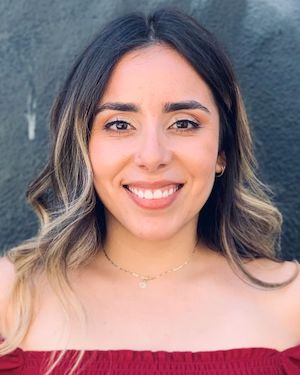
10 tips from me to you ⟩
December 20, 2021, by Silvia
My DMs — and by DMs, I mean email — have been poppin’ with variations of the same question: “Any advice/tips regarding the program or in relation to pursuing higher education?”
To be completely honest, I don’t know how I have made it this far. I guess it really is fake it till you make it, am I right? When you’re a first-gen student not only do you not have people to guide you through this journey, but you also don’t know what questions you should be asking to those that may be able to advise you. There’s a lot that I wish I would have known before romanticizing the idea of being the first in my family to go to college, pero no pasa nada oiga. Ya estamos aquí, y lo que me toca a mi is to share some of the things that have helped me thrive as a student and person. I’ll preface the rest of this blog by saying that these are general tips that I have put together as I look back on my academic career, but feel free to reach out for more specific advice if you need.
Okay so here we go, Blogmas day 10 = 10 tips from me to you. 😊
10. Develop a morning routine
Morning routines are your friend. When I started the program, it was completely online, which made it easy to wake up minutes before class, roll over, grab my laptop, and log on from bed. It also made it easy to fall right back to sleep . . . oops. Needless to say, this was not a productive or effective start to my school day; I felt like I needed to do something to feel awake and alert for class in the mornings. One day I decided to wake up early to work out before class and let me tell you, it was life changing. I live by my morning routine and think we should all have one. Some one told me that there are two instances during which we can have the most control over our days — you can’t control what happens throughout your day, but you can decide how you start and end your day (for the most part). I choose to start my day with a morning routine because it sets the mood for the rest of my day and makes me feel accomplished from the get-go.
Silvia’s morning routine: wake up between 6:00 AM – 6:30 AM, do a 20-minute workout, drink a cup of water + coffee or tea, do my skincare.
9. Sleep
Raise your hand if you’ve ever been told to get a good night’s sleep before an exam because you’ll do better than if you stay up late trying to cram . . . but you still chose to stay up? I won’t raise my hand because I don’t believe in pulling all-nighters. In undergrad I may have pulled one or two, but since starting OT school, I don’t compromise my sleep. Listen to NPR’s Ted Radio Hour podcast “Maslow’s Human Needs” starting at 6:30 — you can thank me later.
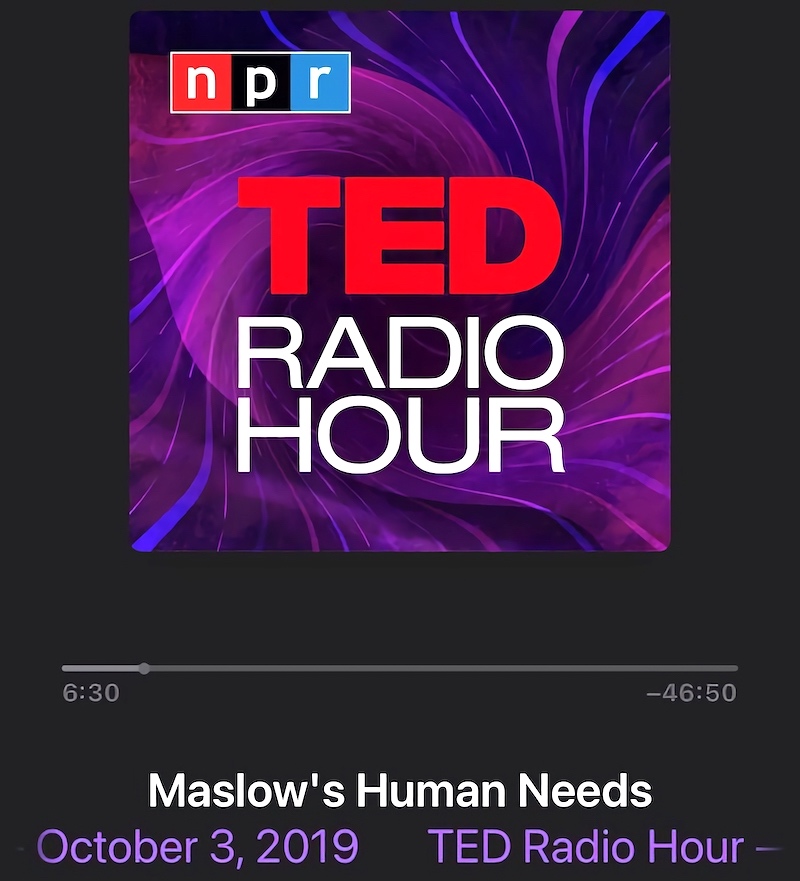
NPR Ted Radio Hour
8. Take a mental health day
That’s it. That is the advice. Don’t go to school, don’t go to work. Take a mental health day.
7. You don’t have to be productive every day
The student urge to make a to-do list of everything they want to get a head start on/finish when they have a day off is real. It’s me, I’m student. Last semester I had class Monday-Wednesday and fieldwork on Fridays. Thursdays were my free days and when I tried to be as productive as I could by getting ahead on readings or finishing assignments, on top of doing ambassador work. Some days though, I was tired and didn’t want to do any schoolwork. At first, I would beat myself up for wasting my day doing “nothing,” thinking it wasn’t “productive.” Truth is, we’ve been conditioned to think that we must always be working or on-the-go, that giving our bodies a rest seems unacceptable. But, in the wise words of my friend Amy, “It’s ok. You don’t need to be productive every day.”
6. Set boundaries
I’m not sure that I do this too well, but Kim said I do so I’m listing it here. Basically, check in with yourself and be realistic of how much you can handle. If you need to say no to something, or push a commitment back, do it.
5. What works for you, works for you
One thing about my cohort is that we help each other out. Everyone shares their study materials — whether it is a Quizlet or a study guide — and I love them for this. However, I can’t stress how important it is to know that what works for them may not work for you and vice versa. When my friends started sharing their study materials for an exam that I hadn’t even thought of, I became anxious, and the impostor syndrome kicked in. Was I smart enough or competitive enough to be in this program? I had to give myself a pep-talk to remind myself that we have all gotten here doing things differently and what works for me, works for me, anything beyond that can be used to supplement my study skills and habits. Let me know if you need a pep-talk.
4. Plan your days
I use my planner religiously. Even if my days look the same every day, I write down my schedule to a T, and try to stick to it as much as possible. Similar to my morning routine, this gives me a sense of control over my day, and there’s just something so satisfying about crossing things off as you go through your day.
3. “Not my best work” is good enough
If I had a dollar for every time I turned something in last semester and said, “that was not my best work,” I would have a lot of money, still not enough to pay my tuition, but enough to kick off my last semester of grad school with a girls trip.
For real though, doing the bare minimum is good enough sometimes. If you want to have a life outside of school, while still being a “good student,” you’re going to have to learn to prioritize which assignments need to be your best work, and which don’t. If it is a credit/no credit assignment do not spend more than an hour on it (and that’s pushing it).
2. Fake it till you make it
Pretty self-explanatory, I think.
1. Grades don’t matter
Ok, they do . . . but not really. All I can tell you is that if you’re debating between 1) depriving yourself of your favorite and restorative occupations to stress over studying to get an A, or 2) studying modestly while also balancing your other occupations and getting a B, do the latter. There’s more to life than school. You’re still going to graduate and become a great occupational therapist.
Alright friends, that’s it. I have to get back to babysitting but I’ll be back for Blogmas day 2!
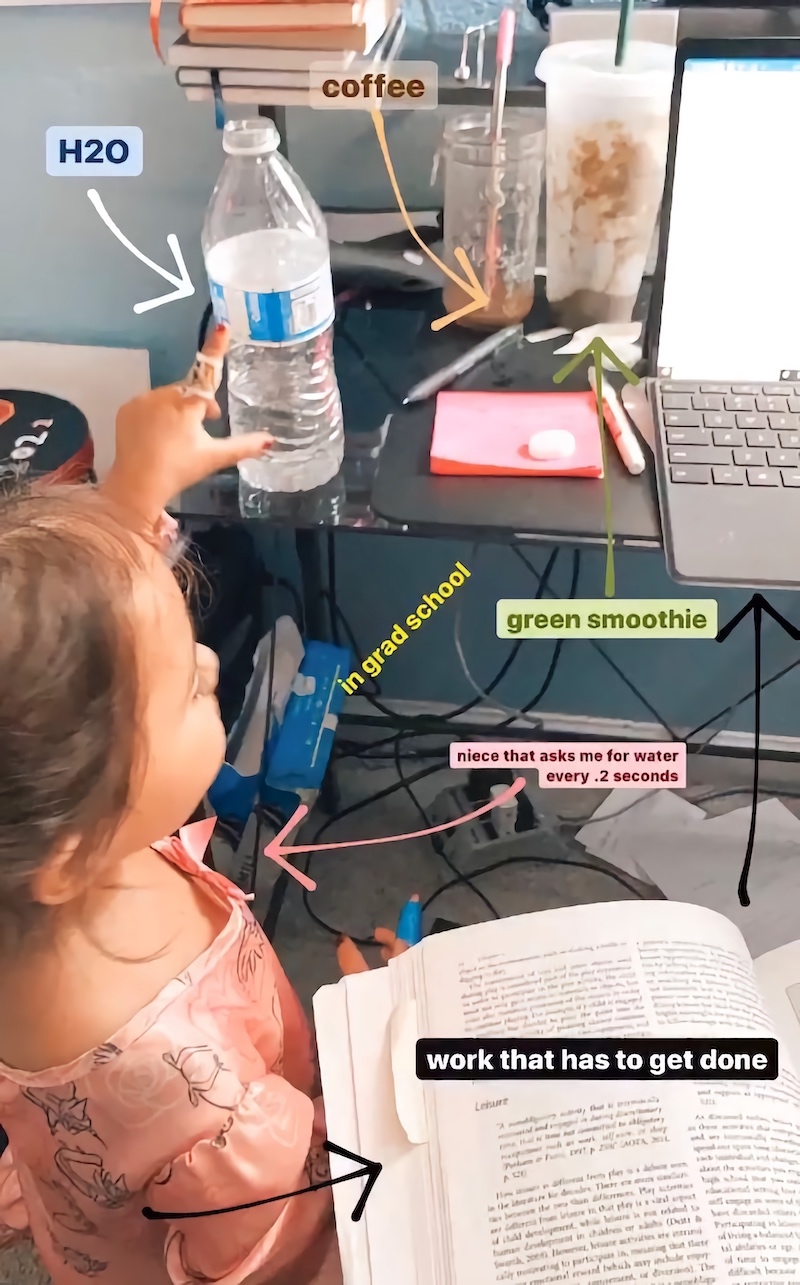
Zoom University days with my niece, Demi
⋯
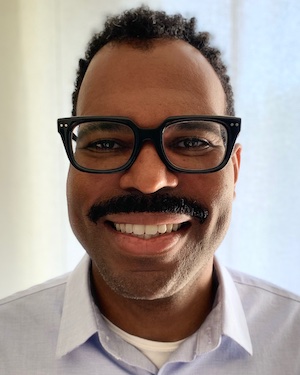
11 out of 12 Instrumental Activities of Daily Living ⟩
December 17, 2021, by Guy
Life Hacks
With 11 days until the New Year, I have chosen to write about 11 of the 12 Instrumental Activities of Daily Living that have influenced my life. In the Occupational Therapy Practice Framework: Domain and Process (4th ed.; AOTA, 2020), Instrumental Activities of Daily Living are defined as activities to support daily life within the home and community that often require more complex interactions than those used in ADLs. While those of us interested in occupational therapy often focus on ADLs, I have come to realize how essential the following 11 Instrumental Activities of Daily Living are to me. These activities not only help to give my life meaning, but they give me an interesting way to look at some of the things I have accomplished this past year and what I want or need to do in the upcoming year.
1. Care of others: Caring for others helps me to gain a realistic perspective on my own life, gets me out of my head, and gives me some humility. This past year I have spent a lot of time helping my 98-year-old father. This past week I have been helping him to move. While stressful, I am getting to spend more time with him which I recognize is such a precious thing. I am grateful for his love and have been reminded how lucky I am to have him in my life. Hopefully I can continue to care for him in the same way he has always cared for me.
How have you cared for others this past year? How can you be of service in 2022?
2. Care of pets: Every other month this past year one of my dogs was sick. Last week my dog Jack refused to eat and had some sort of doggie norovirus. Yuck! My other dog Sharon seems to have some sort of problem with her paws every other month. It’s all good because they provide me with so much love and attention. Although they are not official emotional support animals, they take care of me more than I care for them.
Do you have a pet? If you haven’t but have always wanted one, maybe 2022 is the year!
3. Communications management: With Covid, keeping connected with others has been so important to maintaining my emotional health. I have even resorted to writing letters this past year. While I don’t do the holiday card thing, this time of year reminds me to reach out to my friends and family to let them know how much they mean to me, and to tell them how honored I am to have them in my life.
Is there someone you have wanted to speak to for a long time but just haven’t got around to it? Trust me, get in touch while you can!
4. Driving and community mobility: New York City has great public transportation, so you don’t really need a car. LA, the public transportation can be challenging. I feel lucky that my wife and I, having lived in NYC for so long, have no problems navigating the city using public transportation or by walking. But I am also extremely fortunate to have a car. Especially when we need to get out of the city to see nature. I hope that this upcoming year I can see more of California like Yosemite, Death Valley, and maybe the Redwoods.
Where have you gone? Where are you going?
5. Financial management: With one semester left to go before graduation, I know many of my classmates have been talking about paying back loans, potential benefits and salaries, and other money matters. While daunting, it has opened my eyes to how helpful it is to talk to others who share my worries about money. So many of us try to figure all this money stuff out on our own. We don’t need to suffer in silence.
Do you have someone you can talk to about your finances? Is there someone you know and trust that can support you with money matters as you get ready to start graduate school or graduate?
6. Health management and maintenance: This past year I got back into running. I’m now up to running 4 days a week in the morning. Next year I want to run a half marathon. It isn’t always easy to get up and run. Some days I just don’t want to do it even though I know I always feel better when I run. On days when I don’t want to run, I remind myself of a phrase I learned in my pediatric immersion class, “When in doubt prope (proprioception) it out”.
Do you have any health maintenance routines? What will you do to support your health and wellness in 2022?
7. Home establishment and management: Recently my wife and I have been going back and forth about getting a new bed. After putting a lot of effort into creating a nice place to live, this is the one thing in our house that still needs to be addressed. However, the cost of a new mattress/bed is expensive! We both know we need to be comfortable sleeping – Am I right?
How have you made your home comfortable? Are there any changes that you would like to do to make it better?
8. Meal preparation and cleanup: Food, glorious food. I sure have been cooking a lot. One major change this year was unforeseen. My wife decided to become gluten free, so I also became gluten free. This has added a whole new dimension to preparing meals and dining out. I became that Guy who knows all about gluten free pizza and cookies. The benefit of this change is I have healthier eating habits and am much more mindful of what is going into my body. I also have been thinking about what it could be like to cut out meat or at least limit my consumption of meat.
What types of new foods have you discovered? What types of food or meals to you think you might want to prepare in 2022?
9. Religious and spiritual activities and expression: I feel like I have neglected this aspect of my life and as a result can tell a difference in my day-to-day outlook. I lost someone very close to me this past year which awakened this otherwise dormant part of me. So many questions after experiencing the death of a loved one . . . so many questions.
10. Safety and emergency maintenance: There was one earthquake this last year that was rockin’. Yuck. I forgot about how earthquakes felt while living in New York. We had hurricanes and snowstorms, but they didn’t compare to the feeling I had with this earthquake. I thought what if the “big one” comes? As a result, we put together an emergency kit and started getting together some nonperishables just in case the big one happens or if there happens to be a Zombie apocalypse.
All kidding aside, how can you keep up your safety and emergency maintenance?
11. Shopping: Shopping has been a challenge as this year. Especially as a student with a limited income. However, I have mastered the art of making food shopping lists that are always within budget. Also, as an OT student I fortunately am not needing to keep up with wearing the latest fashion . . . but I do like me some clothes so maybe next year I’ll try to set aside some money for some new threads . . .
Have you noticed inflation? How are you dealing with rising costs going into 2022?
And about that 12th IADL — Child Rearing . . . Well, I don’t have any children right now, but maybe in 2022? We will see?!
As you reflect on your 11 or maybe 12 IADLs, I hope they are as enlightening to you as they have been for me. Have a Happy New Year.
⋯





